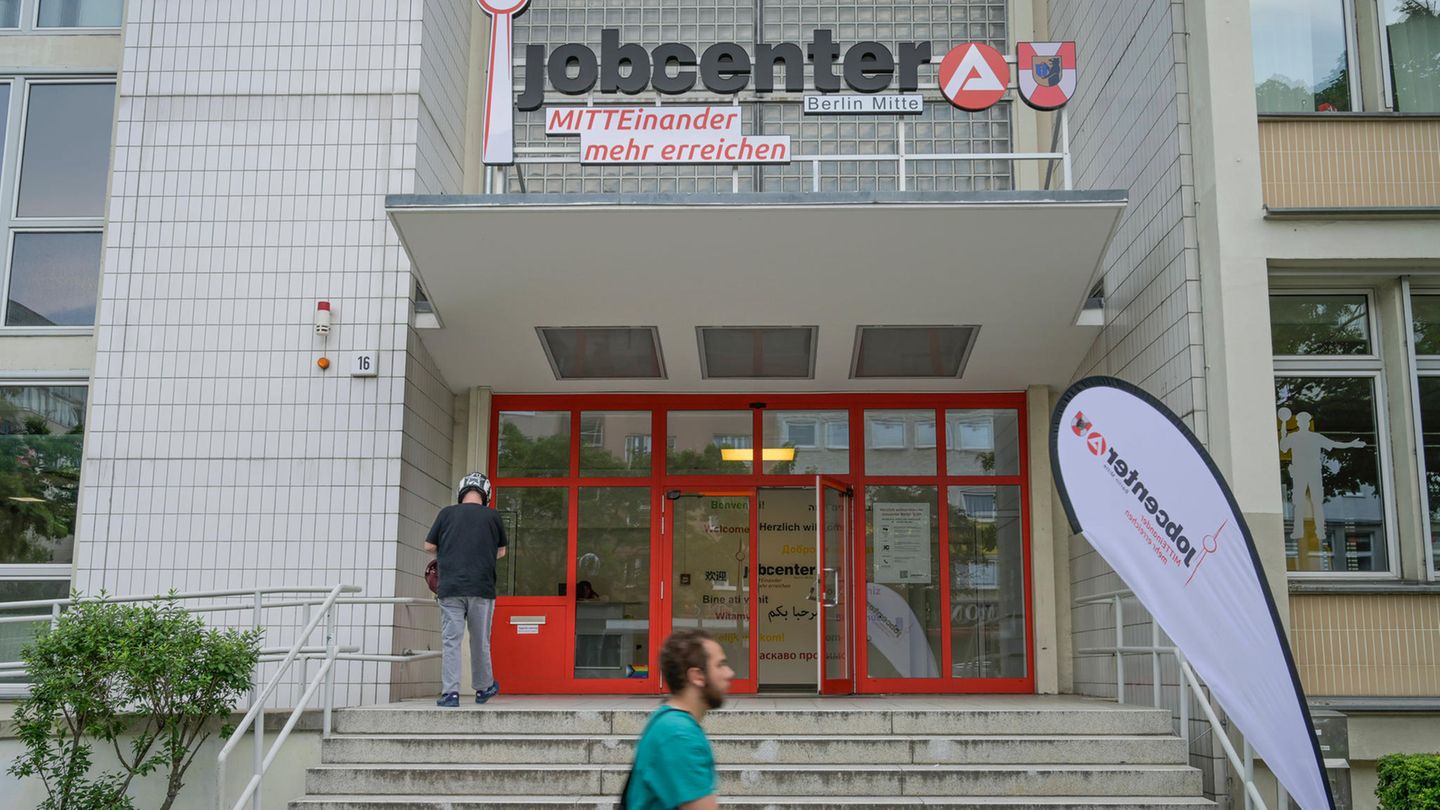A new study confirms a frequent criticism of citizens’ money: With the Hartz IV successor, fewer people affected are taking up work. The FDP is calling for changes.
It’s not as if there has been a lack of voices in recent months calling for an overhaul of citizens’ money. The opposition Union, which approved the Hartz IV successor in the Federal Council a year and a half ago, wants to abolish citizens’ money in its current form.
The FDP, as the government party involved in the introduction of citizens’ money, also spoke out in favor of an “update”. In times of budget emergencies and labor shortages, the generous reform no longer seems to be communicated to its own supporters. With the new citizens’ money, the sanctions for rule violations were weakened, the standard rates were increased and the limits for assets and housing costs were increased in the first year of receipt.
So far, no one has been able to say exactly whether the frequent criticism of citizens’ money is actually true: Are fewer unemployed people actually taking up work with citizens’ money than before? Because the reform is only a year old, there has simply been a lack of data. It was easy for the SPD, the Greens, the social associations and trade unions to dismiss the demands for an overhaul as populist slogans or “mood-mongering” at the expense of the weakest.
Citizen’s benefit study: Six percent fewer jobs
This is now different: the Institute for Labor Market and Vocational Research, which is docked to the Federal Employment Agency. Economist Enzo Weber found out: Citizens’ benefit apparently reduces the incentive for people on basic income to take up work. If you exclude all other effects, the number of people taking up work thanks to the citizen’s benefit fell by around six percent in the first year after its introduction. .
The study fuels the political debate – although the results seem to serve familiar reflexes rather than really leading to new positions. The deputy parliamentary group leader of the Greens, Andreas Audretsch, still sees no reason to tighten the citizens’ benefit rules: “We have to get people into work, that’s what we’ve geared everything towards,” Audretsch told the star. The core of the citizen’s money is to place people in jobs on a permanent basis, which is why new incentives for further training have been created. “The study confirms that this is exactly the right approach.”
A central element of citizens’ money is that the so-called placement priority has been abolished. This means that basic security recipients can do further training instead of having to take a job straight away. The traffic light wanted to combat long-term unemployment, which often has to do with a lack of qualifications. Study author Weber told “Spiegel” that his results did not change the fact that this basic idea of qualification was correct. “But we need to bring together more employment and high quality jobs.”
FDP: “Disincentives are not just anecdotes”
With the new study results behind them, the FDP is now increasing the pressure: “The study shows that false incentives for citizens’ money are not just anecdotes,” said FDP social politician Jens Teutrine star. “In everyone’s interest, a further revision of the law is necessary.”
The coalition “should not ignore it and just shrug its shoulders when fewer people are placed in jobs, but must act,” said the FDP politician. The economy is urgently looking for workers, while at the same time the number of unemployed people taking up work is decreasing.
Teutrine is therefore proposing, among other things, stricter sanctions: “Anyone who doesn’t cooperate or doesn’t keep appointments for no reason will have to face harsher consequences more quickly.” But he also believes that new additional income limits and a different mode of qualification are necessary. “Instead of full-time qualifications while unemployed, more dual qualifications are needed alongside work.”
Greens see “possibilities exhausted” when it comes to sanctions
Scientist Enzo Weber advocates, among other things, reducing the standard rate by 30 percent for the first violation – the Federal Constitutional Court sets this highest reduction as a framework. So far, this 30 percent reduction in the standard rate is only due after the third violation and then only for one month.
Green politician Audretsch, however, sees all options exhausted with the current sanctions regime. “The Federal Constitutional Court has allowed cuts of up to 30 percent of the standard rate, and we made that possible with the reform.” In order to create even more incentives to take up work, he is calling for a significant increase in the minimum wage, to 14 euros per hour in 2024 and to 15 euros per hour in 2025. “A huge incentive to work even harder.”
For the Greens it is a tiresome debate. It was originally hoped that the discussions about basic security for the unemployed would be over after the successful passage of citizens’ benefit. Instead, they experience how the bag is opened again and again: Only during the last budget negotiations did Labor Minister Hubertus Heil (SPD) tighten the sanctions for so-called total refusers. .
It currently seems unclear whether there will be any adjustments to citizens’ money in this legislative period. The traffic light parties would probably be less vulnerable in the election campaign if they actually adapted citizens’ money to new findings. Because one thing is already becoming apparent: the Union will go into the election campaign with the “New Basic Security”, with which it wants to replace all of the traffic light citizens’ money.
Source: Stern
I have been working in the news industry for over 6 years, first as a reporter and now as an editor. I have covered politics extensively, and my work has appeared in major newspapers and online news outlets around the world. In addition to my writing, I also contribute regularly to 24 Hours World.




